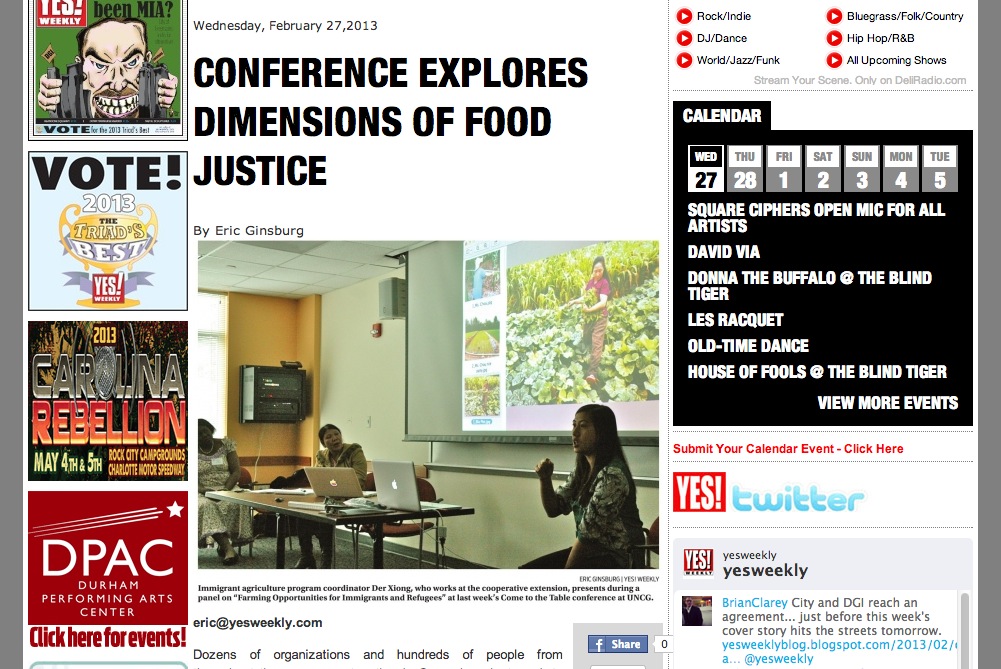By Eric Ginsburg, YES Weekly
Dozens of organizations and hundreds of people from throughout the area came together in Greensboro last week to talk about an issue central in everyone’s lives: food. The Come to the Table conference, held at UNCG, was designed to assemble people who are working on and concerned with food issues to learn, network and organize around food access and justice.
Pastors, farmers, labor organizers, food-stamp recipients and nonprofit professionals from throughout central North Carolina were joined by keynote speakers from Detroit and Philadelphia to share ideas and experiences.
Presenters drew connections between food, land and justice throughout the day in a series of simultaneous workshops focused on an array of issues from food insecurity in the area to youth organizing.
According to participants, it was a smashing success.
Andrew Young, who moderated a panel about immigrant and refugee farmers and who is a research fellow at the Center for New North Carolinians, said a themed discussion table during the provided lunch was particularly useful.
“It was a really great networking opportunity for our participants [and] for folks to meet one another,” Young said. “Prior to the actual presentation we had a terrific conversation at mealtime.”
People at Young’s table swapped practical knowledge — about sweetpotato leaves, cassava cuttings and more — before heading to the afternoon panel he facilitated. There, immigrants, refugees and advocates shared their work ranging from a group in Carrboro farming with 140 Karen people from Burma to the new Congolina Farm in Brown Summit bringing Congolese families and seeds together with a local farm.
At the core, it is all about empowerment, Young said, adding that many refugees are displaced farmers who could be a part of the “food revolution” in the area.
“As we talk more and more about food issues in the Piedmont, awareness just grows and grows,” he said. “I was really happy to hear the feedback from the people that were in the room; it was really, really positive. I wish we had more conferences like this.”
That’s a big part of the reason Come to the Table is organized in the first place, conference coordinator Sarah Gibson said.
“I think it’s a really fabulous way for people to connect around very complex issues that intersect but often aren’t talked about [in terms of] how they relate,” Gibson said. “It gives people the opportunity to connect across some conventional boundaries.”
The conference, which happens in the western, Piedmont and eastern parts of the state, has been held every other year since 2007. This year is the first time it was held in Greensboro — two years ago it was in Winston-Salem.
It grew out of work by the Rural Advancement Foundation International, where Gibson works, and the North Carolina Council of Churches. Gibson, Come to the Table Director Francesca Hyatt, and many others pulled together this year’s Piedmont conference, co-sponsored by UNCG’s communications department and Wake Forest Divinity School.

